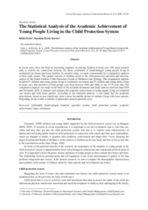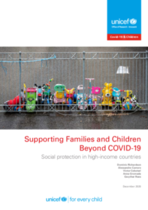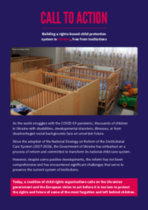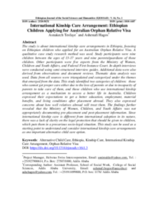The Statistical Analysis of the Academic Achievement of Young People Living in the Child Protection System
This research aims to explore the connections between the future orientation of disadvantaged young people living in residential care homes and foster families, by a comparative analysis of their study results.




